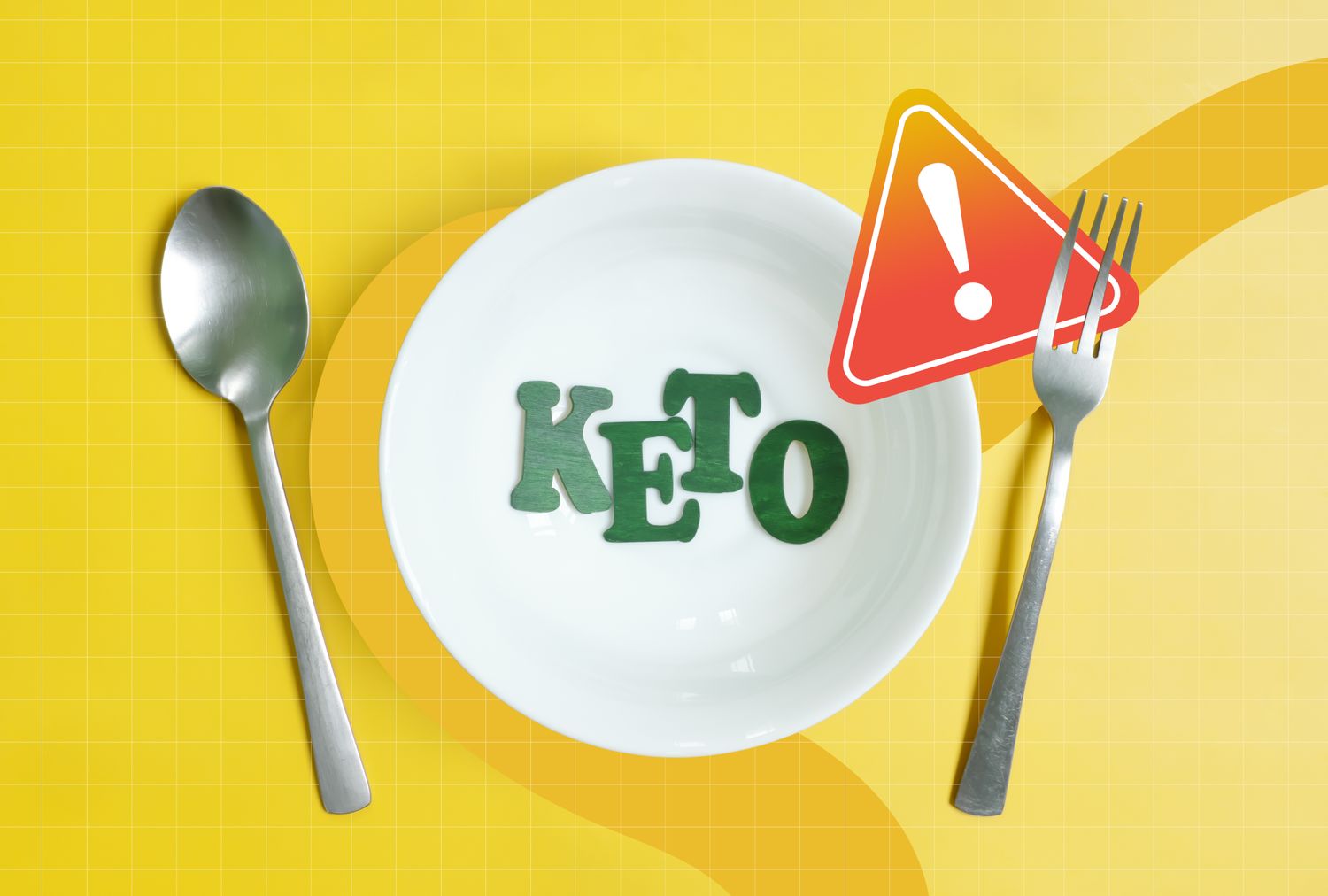- The ketogenic diet is a very low-carb, high-fat diet often used for weight loss.
- This study suggests the keto diet may increase the risk of all cancers.
- Following an anti-inflammatory diet may reduce the risk of cancer.
Heart disease still holds the top spot for causes of death in the U.S., but cancer isn’t far behind, with each condition claiming the lives of over 600,000 Americans every year. And while researchers are more confident about preventing heart disease through lifestyle changes, cancer remains a bit more elusive.
Scientists are continually searching for ways to prevent cancer and increase survival rates for those with the disease. Researchers from China analyzed data from a long-running U.S. survey called the National Health and Nutrition Examination Survey (NHANES), collected between 2001 and 2018. They wanted to know what association, if any, exists between a ketogenic diet and cancer. They published their findings in Nutrition and Cancer—let’s break down what they found.
How Was This Study Conducted?
For this analysis, almost 44,000 participants from the NHANES met the researchers’ criteria. The participants were fairly evenly split between men and women, but did skew slightly more female. Participants were at least 20 years of age.
All of the data were self-reported, including history of cancer, dietary information and demographics. The question used to determine whether a participant had a history of cancer was “Have you ever been told by a doctor or other health professional that you had cancer or a malignancy of any kind?”
Dietary intake was calculated using the average of two 24-hour dietary recalls, which researchers used to calculate each participant’s dietary ketogenic ratio (DKR). The DKR indicates the likelihood of someone entering ketosis based on their macronutrient ratio. Ketosis occurs when carbohydrates, the body’s preferred source of energy, are not available. The body turns to fat as an energy source, and then the liver converts fat into ketone bodies, which can also be used as an energy source. Participants were placed into one of four quartiles based on their DKRs, with Q4 having the highest DKRs and Q1 the lowest.
Statistical analyses adjusted for age, sex, ethnicity, income and education levels, marital status, BMI, smoking status and medical history.
What Did This Study Find?
Researchers found that as DKR increased, so did the risk of cancer. And not just one or two types of cancer, but all cancers. In other words, they found a significant association between the keto diet and the risk of developing cancer.
While these study authors note that there are likely some short-term benefits of a keto diet, the long-term risks may outweigh the benefits. The question of why keto may raise cancer risk needs to be explored further, but researchers provide a few possible explanations. First, they note that ketones have been implicated in increasing oxidative stress, causing cellular damage, which increases the risk of developing cancer. They also point out that while cancer cells typically prefer to use glucose as an energy source, research suggests that some cancer cells can utilize ketones as an alternative energy source to survive and proliferate.
In addition to these findings, the researchers also found that as the degree of ketosis increased, there was a notable decline in the antioxidant properties of vitamins A, C and E, as well as trace elements such as manganese, zinc and selenium. This aligns with numerous studies that have consistently shown that deficiencies in antioxidant vitamins and trace elements can substantially increase the risk of all cancers.
One significant limitation of this study is that participants’ ketosis levels were not directly measured with bloodwork. Also, all information was self-reported, which leaves room for error and bias. This includes cancer diagnoses, which might have been more accurate had they used participants’ medical records.
How Does This Apply to Real Life?
While a ketogenic diet does have some legitimate medical purposes—like reducing seizures in children with epilepsy—beyond that, it’s mainly used to lose weight. The problem is following it long-term—let’s face it, one can only eat so much cheese and bacon. While all foods can fit into a healthy eating pattern, it’s important to eat a variety of foods to ensure that your body gets the nutrients it needs. Though this study can’t say that a keto diet causes cancer, there appears to be a strong connection between the two, and more research should be done.
Since we know there’s also a correlation between chronic inflammation and cancer, eating an anti-inflammatory diet may reduce cancer risk. An anti-inflammatory diet focuses on fruits, vegetables, whole grains and healthy fats.
Besides eating a varied, balanced diet and maintaining a healthy weight, the American Cancer Society recommends reducing cancer risk by engaging in regular physical activity, managing your stressors, getting plenty of quality sleep, avoiding or limiting alcohol and not smoking.
Our Expert Take
This study suggests a connection between the ketogenic diet and cancer risk. While keto could help you lose weight, the risks may outweigh the benefits. If you feel better reducing carbs, there are healthier and more moderate ways to do so that don’t go to keto extremes. To get started, choose from our low-carb, high-protein dinners that come together in just 30 minutes or our high-protein, low-carb breakfasts to help you lose weight. If cancer prevention is top of mind, taking a holistic approach may help prevent not only cancer but also other diseases, including heart disease and diabetes. Include plenty of fruits, vegetables, whole grains, legumes, nuts, seeds, lean proteins and healthy fats in your diet. In addition, move your body often, deal with what’s stressing you out, get enough quality sleep and spend time with loved ones.
